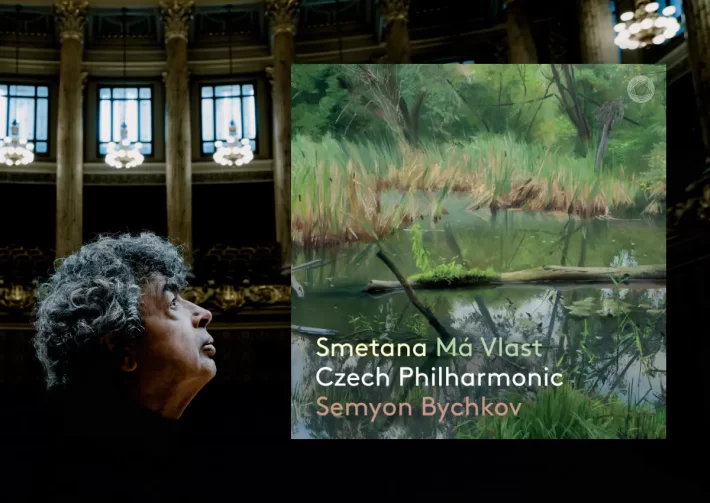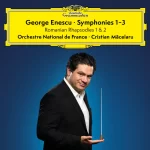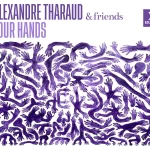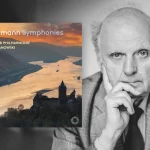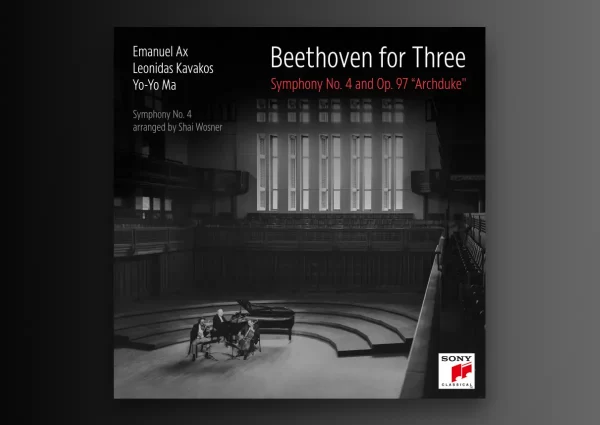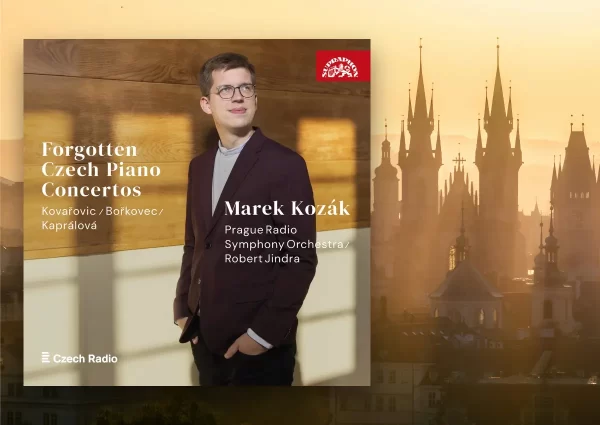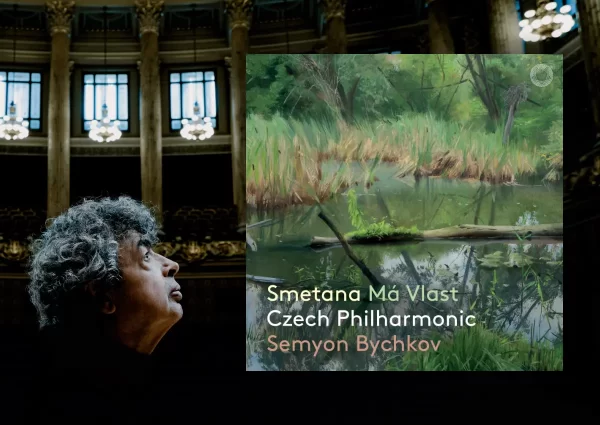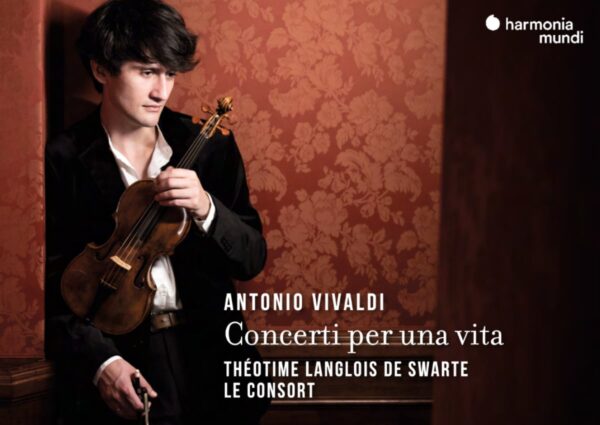Image: ©️ Marco Borggreve
There are some two dozen readily available recordings of Má Vlast featuring this orchestra. To name a few, the oldest, Kubelík’s recording from the 1990 Prague Spring Festival (Supraphon), is uniquely emotional, because it marks the first time he conducted in his homeland since leaving four decades before. The engineering, however, is unexceptional. Mackerras’ 1999 Festival performance recording (also Supraphon) has superior sound and is thrillingly dramatic. Jiří Bělohlávek’s final recording, released after his death, has a valedictory tone. Decca’s superior engineering allows us to fully appreciate the playing of this orchestra.
But Pentatone’s new recording is in a class of its own. I was continually struck by the incredible dynamic range and almost voluptuous orchestral sound. Up to now, Jakub Hrůša’s recording with the Bamberg Symphony Orchestra (Tudor) has offered the best sound (and is also the finest non-Czech Philharmonic performance available). But Pentatone’s work is even finer, and despite the overall excellence of the Bamberg performance, it doesn’t match the level of playing heard here.
If forced to find a negative aspect of this reading, I would argue that the river’s flow in Vltava (surely the best-known movement) is a tad slow, Bychkov’s journey taking 13’09” versus Kuchar’s 11’39”, Mackerras 12’05” and Hrůša’s 12’39”. Yet the mermaid’s moonlight dance is spellbinding, the rapids fearsome. In Šárka (track 3), listen to the masterful buildup (beginning 3’18”), from plaintive clarinet solo grows to an increasingly complex texture that crests with a tremendous climax (5’04”). The women warrior’s murder of the sleeping men is graphically portrayed. In “From Bohemia’s Woods and Fields” (track 4) the splendor and weight of the opening bars suggests overwhelming wonder at the natural world, whereas the festive and joyous closing section is evocative of a village celebration.
More Classical Music Reviews
- Review: Franz Schmidt – Complete Symphonies – Frankfurt Radio Symphony Orchestra, Paavo Järvi
- Review – Bartók, Szymanowski, Janáček – Piotr Anderszewski, Piano
- Review: Grazyna Bacewicz – Orchestral Works Vol. 1 – Oramo, BBC Philharmonic
More than one commentator has intimated that the last two movements fail to match the inspiration of the previous four. Indeed, the fifth movement’s melodic material, mostly based on the Hussite hymn “Ktož jsú boží bojovníci” (“Ye Who Are Warriors of God”), is facile. A successful interpretation requires particular attention to structure, dynamics, and, most importantly, atmosphere. The mood of intense brooding in the opening minutes of Tábor is deeply affecting, and Bychkov and his player negating any sense of repetitiveness through subtle changes to the weight and color of each melodic statement. The Coda of ‘Blanik’ brings a powerful emotional release, resplendent Czech brass celebrating the victories of St. Wenceslaus’ knights.
The excellent liner notes include an introductory note by the conductor, Smetana’s full program, and an erudite examination of the music by Michael Beckerman. While I respect many of Bychkov’s previous recordings, few have drawn genuine enthusiasm – but this one does. I will now listen to this team’s Mahler symphonies, and I eagerly await their Dvorak symphony cycle, due to be released by Pentatone later this year. Enthusiastically recommended.

Smetana – Má Vlast
Czech Philharmonic Orchestra
Semyon Bychkov – Conductor
Pentatone, CD PTC5187203
Included with an Apple Music subscription:
Smetana – Má vlast – Recommended Comparisons
Latest Classical Music Posts
- Review: Enescu – Symphonies Nos. 1-3 & 2 Romanian Rhapsodies – Cristian Mǎcelaru
- Review: “Four Hands” – Alexandre Tharaud
- Review: Chopin – Études – Yunchan Lim
- Review: Britten – Violin Concerto, Chamber Works – Isabelle Faust
- Review: “Mozart, You Drive Me Crazy!” – Golda Schultz, Soprano
- Review: Schumann – Complete Symphonies – Dresdner Philharmonie, Janowski
Read more classical music reviews or visit The Classic Review Amazon store
Follow Us and Comment:
Get our periodic classical music newsletter with our recent reviews, news and beginners guides.
We respect your privacy.

